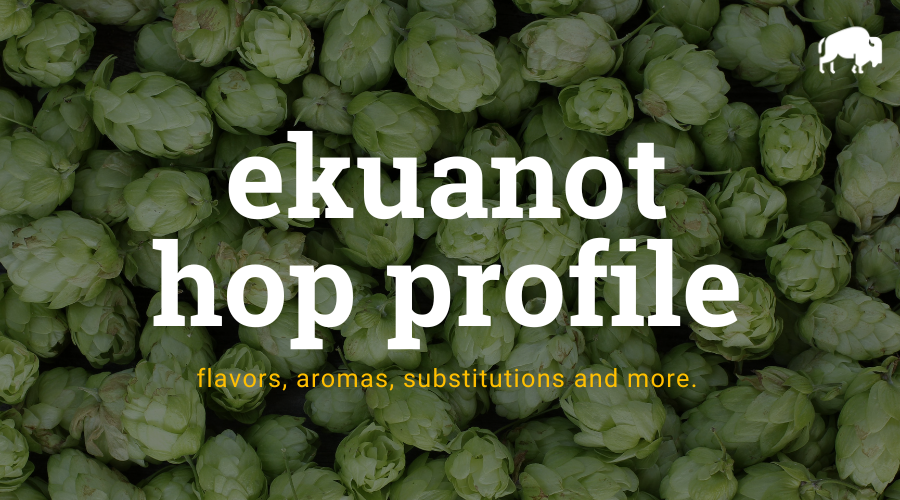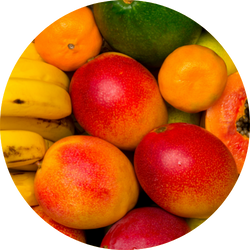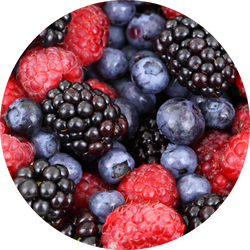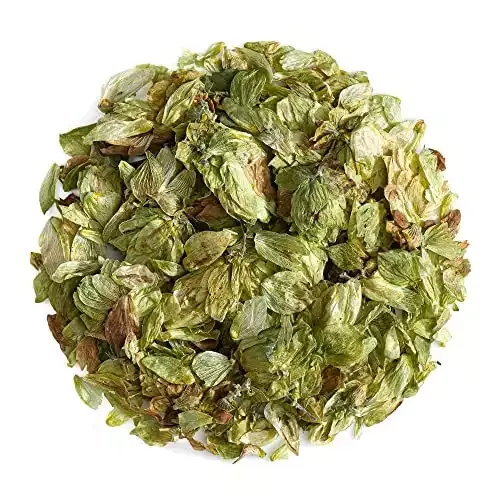
Ekuanot hops, also known as HBC366, is a variety of hops created by the Hop Breeding Company in 2001. It was initially named Equinox but later changed to Ekuanot due to legal reasons. Despite its slow start, Ekuanot’s unique and intense aroma palette featuring concentrated fruit characters with subtle, earthy spice, including melon, berry, citrus, apple, and papaya, had brewers excited even before its official release in 2014.
Ekuanot is distinguished from other varieties by its high total oils, large and dense cones, exceptional yields, and unusually vibrant yellow foliage. Brewers are particularly interested in the concentrated lupulin pellets made from Ekuanot called Cryo Hops, which offer the hop’s massive oil and resin content without dense vegetal matter. Ekuanot is becoming increasingly popular among brewers.
| Usage: | Aroma |
| Country of Origin: | United States |
| Hop Growers Code: | EKU |
Where To Buy Ekuanot Hops
Ekuanot is a newer hop varietal that has received much acclaim. Ekuanot is described as having aromas of melon, berry, orange peel, lime, papaya, pine, and fresh peppers.
Ekuanot Flavor And Aroma
Ekuanot is an aroma hop that is often described to have the following aroma characteristics:

lime, orange peel

papaya, melon

berries
Ekuanot Hop Oil Breakdown
Hop oils can vary from year to year and farm to farm but based on our research, here are the typical values we have seen reported. This information comes from various hop farms, The Hop Aroma Compendium, and For The Love Of Hops.
| Alpha Acid % (AA) Alpha acids are what is isomerized when boiling to create bitterness in beer. | 14% – 16% |
| Beta Acid % Beta acids are what give hops their more aroma and flavor compounds. | 4% – 5.5% |
| Alpha-Beta Ratio This ratio of alpha acids to beta acids determines how quickly bitterness fades during aging. Lower ratios are common for aromatic varieties. | 2:1 – 4:1 |
| Co-Humulone as a % of Alpha Higher numbers are said to impart a harsher bitterness. | 33% – 37% |
| Total Oils (mL/100g) With more total oils, typically comes a more complex hop profile but these are highly volatile compounds. | 2mL – 4.5mL |
| Myrcene green, resinous | 30% – 40% |
| Humulene woody, piney | 15% – 20% |
| Caryophyllene woody | 8% – 12% |
| Farnesene floral | 0.1% – 1% |
| Other Oils: Includes beta-ionine, beta-pinene, limonene, linalool, geranoil & selinene | 24.9% – 46.1% |
| Hop Storage Index (HSI) The HSI indicates the percent of alpha and beta acids lost after 6 months of storage at room temperature (68°F or 20°C). | Retains 60% – 65% of its alpha acid after 6 months of storage at 20ºC (68ºF). |
| Hop Storage Index (HSI) Rating | Fair |
Ekuanot Hop Substitutions
Replacing one hop for another is seldom straightforward but sometimes you don’t have the right hop or the right quantity of hops for the beer you want to make. For those situations, we have made a comprehensive list of hops to substitute on brew day.
These substitutions aren’t perfect as hop chemistry is pretty complex.
We wanted to make this list of substitutions with varietals that are easy to find when possible. For Ekuanot, we recommend substituting with the following hops:
Beer Styles
For the most part, any hop could have a place in just about any beer style. Based on popular beers, historical usage, and our own preferences, we would recommend using Ekuanot for IPA, New England IPA, Pale Ale, Wheat Beer, Golden Ale. That being said, experiment and see what works best for you.
References
https://www.hopslist.com/
https://www.ars.usda.gov/
https://www.brewersassociation.org/
https://www.barthhaasx.com/
https://www.yakimachief.com/
Hieronymus, Stan. For The Love of Hops. Brewers Publications, 2012
The Hop Aroma Compendium. 2012


